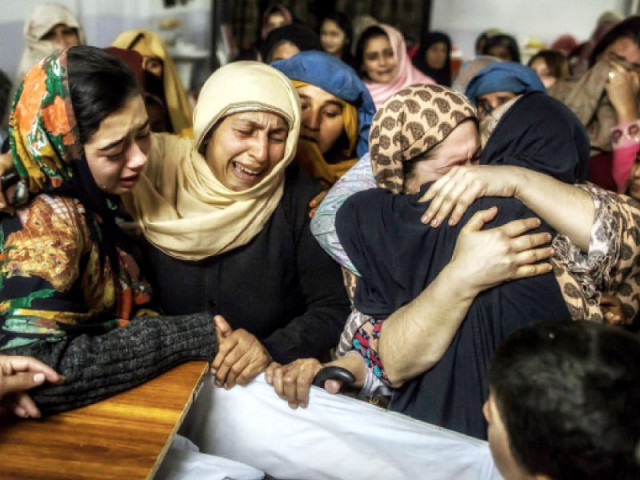Putting promises of change to the litmus test
Looking back at 2014 in K-P has to start with what happened towards its end – the massacre of children by terrorists.

Looking back at 2014 in Khyber-Pakhtunkhwa, in fact all of Pakistan, has to start with what happened towards its end – the massacre of children by terrorists.
That day angered and saddened almost everyone, everywhere, but for a few. The tragedy of December 16, 2014 shows the failure of this State as whole, with Pakistan Tehreek-e-Insaf-ruled Khyber-Pakhtunkhwa (K-P) as one part of it. It was a systemic failure and did not ‘just happen’. The perpetrators of the tragedy were not only the few who carried it out or their immediate leaders, pointing at the fast-growing irrelevancy of State and its writ; it was a failure of governance and all its parts: administrative, political, economic/developmental and socio cultural. PTI was voted in by the electorate of K-P largely due to their dissatisfaction with the inability of the outgoing government to arrest and correct the deteriorating governance of the province.
Administratively, PTI’s main slogan was ending corruption, with improved, people-friendly police and revenue departments—the thana and patwar—its poster children. The answer to overall corruption has been the appointment of a retired general to head the provincial NAB, and having a consultant for all projects and online bidding.

NAB has yet to show anything by way of nabbing any corruption. Consultants are expected to serve as a check on both the contractor and the relevant government department. At this stage it has shown little impact on smaller projects, but on bigger ones, a contractor remarked, “I feed them, provide them an office and they use my laboratory.” Online bidding doesn’t fare better: smaller contracts competed on by larger bidders reduces the chance of collusion between them. But in case of big projects where you have a few pre-qualified contractors bidding, someone throws a lunch and the whole online system is bypassed.
Police stations have reportedly shown some improvement in better dealings with the public that approaches them and in some use of modern forensics and other equipment. However, skeptics counter this, labeling it as superficial and a result of heavy funding for training coming from international donors in counterterrorism support since 9/11.
In the revenue department, the change has been from demanding money to requesting it. Its computerization, started by the previous government, is yet to be completed. Hospital reforms, yet another one of PTI’s flagship programmes, have included minor cleanliness and some improvement by way of availability of medicines. But Sehat Ka Insaaf has just waned away, without much impact. There is no innovation in the much-needed polio eradication programme, carried out as always, by the bureaucracy.
Education has also not seen any impact of the ‘change’. English was announced as medium of instruction in all government schools, but there are few teachers available to teach any subject in it. The change which came was the controversial reversal of syllabi reforms introduced by the previous government and the reintroduction of the Ziaul Haq-era syllabus at the school level. The government has also failed to legislate amendments in universities’ governance proposed by its own commission.
The K-P government came up with a local bodies’ law in 2013, which has many merits, but has yet to hold elections under it.
Many of its detractors claim the PTI government in K-P is actually being run from Bani Gala and Lahore. PTI counters this by claiming the outside intervention to be exaggerated and to the level it takes place; it is welcome expert opinion and help.
PTI’s performance also suffered during the dharna, as the CM and other leaders were busy elsewhere arranging for crowds to attend sit-ins. It took the attention of the public away from issues of the province.
The PTI government did not blunder too seriously either. There were no major scandals doing the rounds privately or publicly.
Professor Ijaz Khan works for the Department of International Relations, University of Peshawar and has authored the book 'Pakistan Strategic Culture and Foreign policy Making'
Published in The Express Tribune, December 31st, 2014.













COMMENTS
Comments are moderated and generally will be posted if they are on-topic and not abusive.
For more information, please see our Comments FAQ